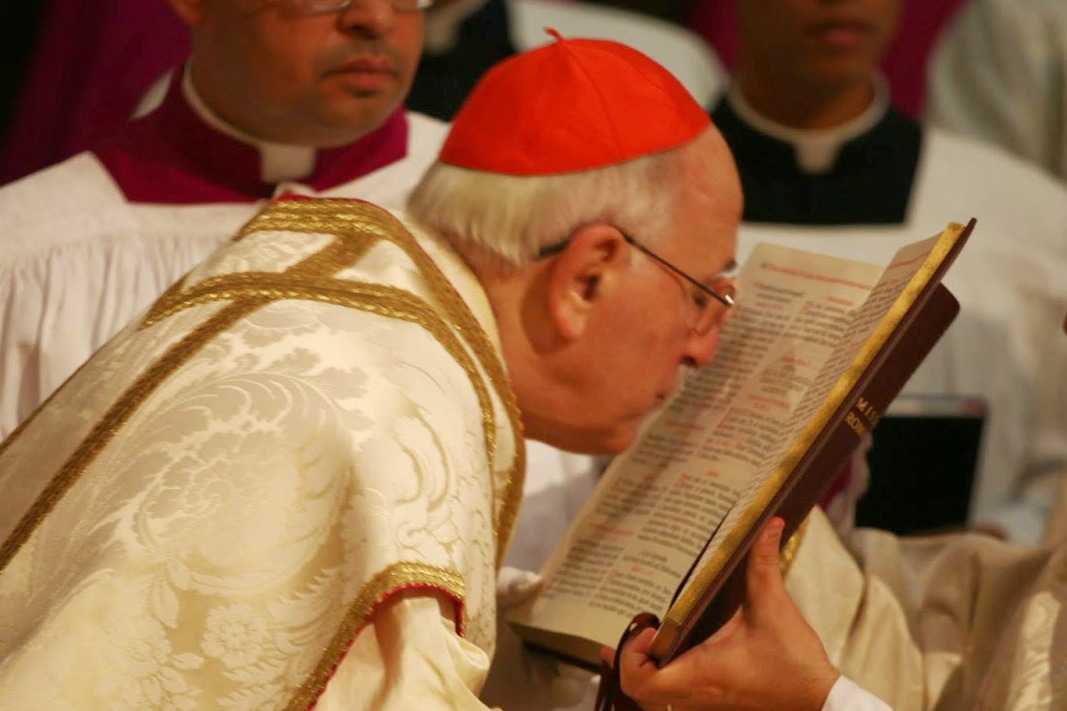The cantor raises their arms, calling the congregation to stand and proclaim, Alleluia. Slowly, I shake myself out of my sleepy stupor and rise with my fellow Mass-goers. At this point, I am thankful for an excuse to stand. I haven’t had much to do for a while, and I’m in danger of falling asleep. Even though they call it the Liturgy of the Word, they don’t really give us many words to say, do they? Instead, we are tasked with listening, an often tiresome task. The soft syllables of the Alleluia roll around in my mouth as a sweet spoken relief.
Before the proclamation begins, I make Gospel guesses in my mind. Maybe today’s is the Good Samaritan? Or is it the Wedding at Cana? No matter which one it is, the Gospel is familiar. Unlike the sometimes obscure passages we encounter as the first reading (you’re telling me Sirach has always been a book in the Bible?), the Gospel rarely surprises us.
But if the Gospel does not surprise us, we are not hearing the Gospel clearly.
Two years ago, I spent a summer volunteering in the St. Peter Claver Catholic Worker community. As I encountered challenges, joys, and persnickety piles of compost, I learned about the Gospel call as identified in Matthew 25:34-40: Clothe the naked. Feed the hungry. Give drink to the thirsty. Pray for the living and the dead. Of course, I’d heard these calls before, but I had not heeded them until that summer.
When I decided to volunteer at the Catholic Worker for the summer, my family was proud. When I didn’t want to leave at the end of the summer, they were confused. “Didn’t you have to do piles and piles of smelly laundry on the weekends?” they wondered. “Didn’t people curse at you while you served them cereal at the Drop-In Center? Didn’t you feel hopeless and unable to go on as you encountered suffering you could not remedy?” The answer to all of those questions was yes. While at the Catholic Worker, I was challenged in ways I could not imagine, and I felt incredibly displaced. Yet I did not want to leave because I had learned that through the Gospel, Christ calls us to a humble life of displacement, challenge, and service, which had transformed me. To live the Gospel, we must undergo a lifestyle transformation. Once we are transformed, it makes no sense to go back to our old ways.
But when I hear the Gospel at Mass, do I remember this? Not really. I tune out as soon as I’ve gotten the gist. If I stayed tuned in, if I really listened to what was being said, would I be able to go about my day in the same way? Would any of us? The Gospel can only be viewed as boring if we hear its call without listening.
Located in the center of the liturgy, the Gospel informs everything else we do during Mass. No matter if we are pounding our chests in penitence, reciting the Creed, or receiving the Eucharist, we practice these things in order to more fully enter into the life of Christ. But the Gospel does not just inform the Mass—it informs our lives. By standing during its proclamation, we physically declare its significance: this is a high point, this is our call. This Word is what sustains us when we leave. We hear it at the center of the Mass so that it may be the center of our lives.
As our minds and hearts are transformed by the Gospel, so our bodies are to be transformed by the Eucharist. In a way, the Gospel serves as the caption for the Eucharistic image. Later, when we gaze at the Body of Christ before consuming it, we are reminded of the Gospel and God’s radical call. The stories we have heard again and again come rushing back as we behold their simple manifestation. We are reminded in the Eucharist that receiving the Body of Christ is an agreement to become the embodiment of the Gospel. “Blessed are those who hear the word of God and obey it” (Luke 11:28). May we hear the Word with a humble heart, accept it as our own, and embody it in the world.
